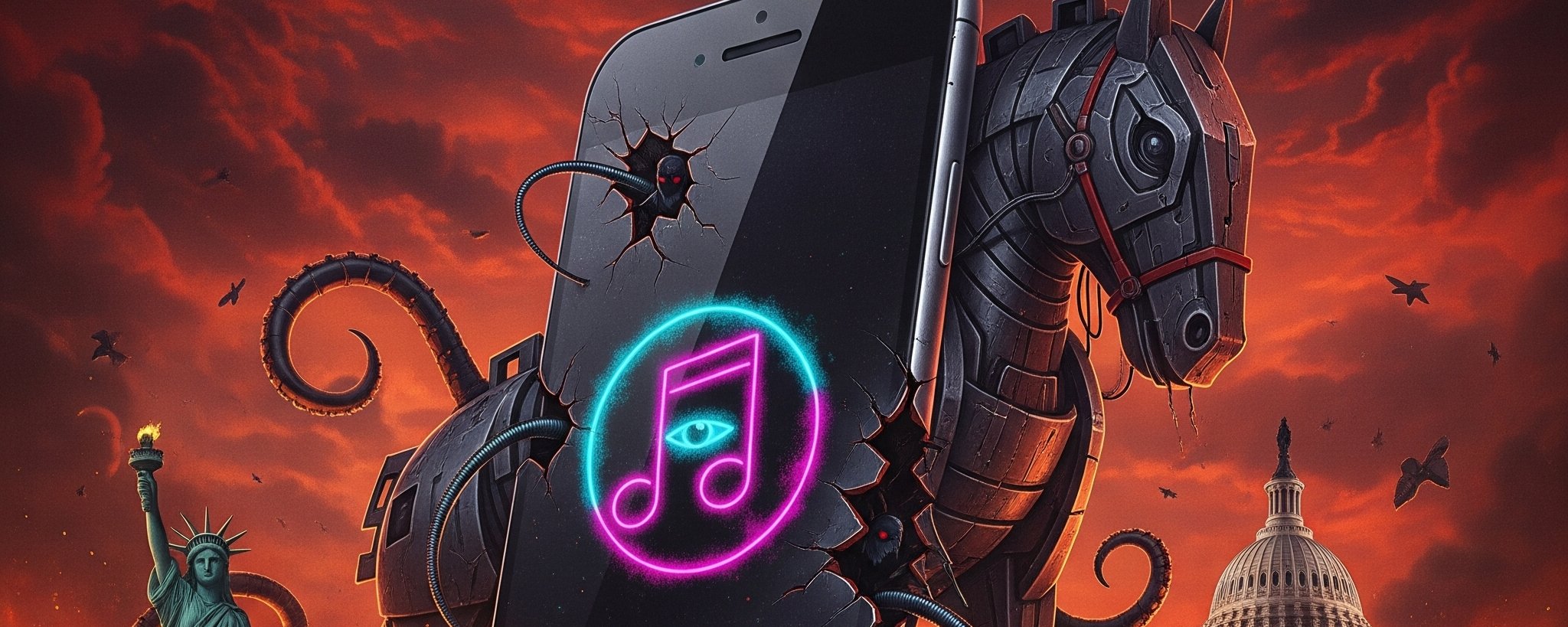Introduction: A Clear and Present Danger
The ongoing debate surrounding TikTok is not merely about a social media application; it is about national sovereignty, the security of our citizens’ data, and the integrity of our democratic discourse. For too long, the conversation has been muddled by half-measures, corporate-speak, and a fundamental misunderstanding of the adversary we face. The passage of the Protecting Americans from Foreign Adversary Controlled Applications Act (PAFACA) was a necessary first step, but it is not the final solution. Current and past efforts to mitigate the threat posed by TikTok are, and have always been, ineffective at addressing the underlying security concerns. The time for divestment negotiations and technical firewalls has passed. TikTok, a tool of the Chinese Communist Party (CCP), must be banned entirely from the United States.
The Corporate Shell Game: A Deliberate Deception
To understand the TikTok threat, one must first dismantle the complex and deliberately opaque corporate structure of its parent company, ByteDance.
- Cayman Islands and Delaware: Havens of Obscurity: ByteDance is not a simple tech company; it is incorporated in the Cayman Islands, a jurisdiction notorious for financial secrecy. This is not an accident. It is a calculated move to obscure ownership and evade American oversight, a direct contradiction to the “America First” principles our nation must embody. Furthermore, its U.S. entity, TikTok Inc., is registered in Delaware, a state with notoriously lax corporate transparency laws, and the home state of President Biden, a fact that should raise serious questions. This is the opposite of the patriotic move made by Truth Social, which reincorporated from Delaware to Florida, demonstrating a commitment to transparency and American values.
- The “Global Investor” Myth: We are told that 60% of ByteDance is owned by “global institutional investors.” This is a classic globalist talking point designed to lull us into a false sense of security. It is a distraction. The critical issue is not the 60%, but the controlling interest and influence wielded by the CCP. This “globalist” structure ensures that American interests will always be subjugated.
- The “Golden Share”: A Dagger at the Heart: The most damning evidence of CCP control lies in the 1% “golden share” held by WangTouZhongWen Technology, an entity backed by the China Internet Investment Fund, in a key ByteDance subsidiary. This is not a trivial stake; it grants the CCP a board seat and direct influence over the company’s operations. This structure is a blatant power grab. No American company would tolerate a foreign adversary holding such a position. It is an insult to our national intelligence to suggest this is anything but direct state control.
Project Texas: A Security Theater of the Absurd
The much-touted “Project Texas,” a $1.5 billion initiative to house American user data on Oracle servers in the U.S., is nothing more than expensive security theater. It is a public relations stunt designed to quell legitimate fears while changing nothing about the fundamental threat.
- Data in the U.S., Control in Beijing: Storing data on U.S. soil is meaningless when it can be accessed remotely from China. Reports from former TikTok employees have exposed a “hidden chain of command,” where U.S.-based staff continued to report to and send spreadsheets of sensitive user data directly to executives in Beijing, long after Project Texas was implemented. The physical location of a server does not create a magical barrier. Data can be relayed, encrypted, and exfiltrated using a variety of techniques, such as chaffing and winnowing, to hide it from monitoring authorities.
- The Oracle Deception: Why should we trust the employees of Oracle to be the ultimate guardians of our data? Texas’s lack of a state income tax and reliance on temporary workers create a transient and potentially unvettable workforce. An employee could be a foreign agent, working “off the books” while accessing the very data we seek to protect. Furthermore, there have been no assurances that TikTok’s data infrastructure is not co-mingled or in proximity to other sensitive systems, such as those of X or SpaceX, creating an even larger potential attack surface.
Financial Entanglements and Propaganda
The flow of money from TikTok to American content creators is another area of grave concern. While they are paid in U.S. dollars, the financial chain originates with a Chinese company beholden to the CCP. Critically, it has been revealed that data related specifically to paid U.S. content creators has been stored on servers in China for years. This intertwines American financial data directly with the CCP’s surveillance apparatus.
This financial leverage is then used to manipulate our public discourse. The rampant pro-Hamas propaganda that flooded the platform following the October 7th terrorist attacks on Israel was no accident. It was a deliberate influence operation, just as Rep. Mike Gallagher and Sen. Marco Rubio warned. To claim this was merely the organic sentiment of users in the Middle East is to ignore the CCP’s well-documented history of information warfare. TikTok intentionally boosted these narratives to sow division and weaken American support for our ally, Israel.
Furthermore, a glaring loophole in PAFACA that exempts “product reviews” is already being exploited. Reports have surfaced of American influencers being paid by the CCP to create travel content that deceptively portrays China as a paradise while denigrating the United States. This is unpatriotic, paid-for propaganda, laundered through a loophole that must be closed.
A Pattern of Deceit and Political Manipulation
TikTok’s history is one of consistent deception and brazen political interference.
- The 2019 Data Heist: In December 2019, it was reported that TikTok harvested user data and sent it to servers in China. This occurred on the cusp of the COVID-19 pandemic, a timing that is far too suspicious to be a coincidence. Was this data used to inform the CCP’s pandemic response or to analyze American sentiment and vulnerabilities as the world plunged into crisis? These are questions that demand answers.
- Weaponizing Users: The pop-up notification that urged users to flood congressional offices with calls was a direct assault on our democratic process. This blatant act of political interference should have triggered an immediate and permanent ban from the Apple and Google App Stores. The fact that these tech giants were derelict in their duty and faced no investigation for turning a blind eye is an indictment of their complicity.
- Lobbying and “Swamp Tactics”: The company has spent millions on K Street lobbyists and groups like NetChoice to peddle its influence in Washington. The bundling of the PAFACA vote with critical foreign aid was a classic “swamp tactic,” designed to rush the process and avoid proper debate.
The Failure of Our Institutions
Our own government and legal system have repeatedly failed to address this threat with the seriousness it deserves.
- CFIUS and Corrupt Delays: The Committee on Foreign Investment in the U.S. (CFIUS) has been investigating TikTok for years, yet we still lack a public, detailed accounting of the specific national security risks they could not mitigate. This “globalist”-sounding committee has moved at a glacial pace, filing status reports every 60 days in a process that appears designed to stall until the threat becomes politically inconvenient. This is unacceptable for a simple social media app.
- Judicial Overreach: The Montana bill (SB 419) to ban TikTok was correctly rooted in the 10th Amendment and States’ Rights. Yet, a federal judge issued an injunction, siding with a foreign adversary over the will of a state legislature. Similarly, previous court injunctions against President Trump’s executive orders were a perversion of justice. A foreign adversary should have no standing to sue in U.S. courts. These were not complex legal questions; they were matters of national survival. A per curiam decision in such a case signifies that the ruling was so obvious that it did not require a single author, yet the courts repeatedly found ways to rule in favor of the adversary.
- Defining the Adversary: The list of foreign adversaries under 10 U.S.C. § 4872(d)(2) is clear and concise: China, Russia, Iran, and North Korea. There is no ambiguity. Yet, the question remains: why haven’t other CCP-linked apps, like “RedNote,” faced a similar federal ban? The President has the authority to deem them a “national security threat.” The failure to do so suggests a lack of political will, hoping the problem will simply disappear.
The Path Forward: A Call for Decisive Action
The arguments of TikTok’s defenders—the ACLU, EFF, and Sen. Rand Paul—are naive and dangerous, placing abstract notions of speech above the tangible security of the nation. They fail to grasp that we are not in a courtroom; we are in a state of information warfare where we must assume guilt until innocence is proven.
President Trump’s concern that PAFACA empowers competitors like Meta is a red herring. The solution is not to allow a CCP-controlled app to flourish. A simple, one-line bill is all that is needed:
“Be it enacted by the Senate and House of Representatives of the United States of America in Congress assembled, That the application ‘TikTok’ and any successor applications controlled by ByteDance Ltd. are hereby banned from operation and distribution within the United States.”
This is the only solution that eliminates the threat. No more extensions, no more negotiations, no more loopholes. The current 75-day extensions by President Trump, while shorter than the 90 days allowed by law, are part of a dangerous game of political brinkmanship that only serves to prolong the threat.
We must reject the globalist structures of CFIUS, the complicity of Big Tech, and the cowardice of politicians who are afraid to take a stand. The evidence is overwhelming. The danger is clear. The time for a complete and total ban is now.


Leave a Reply